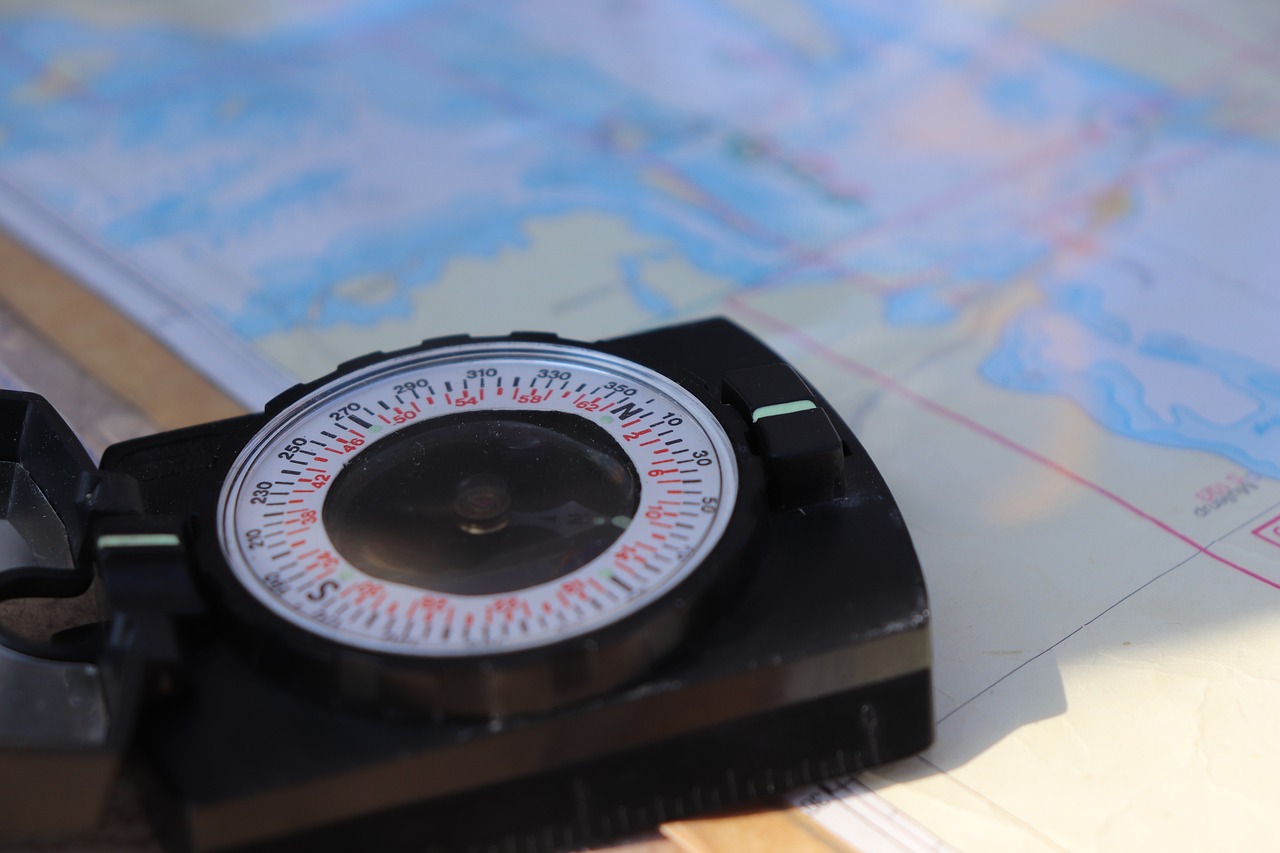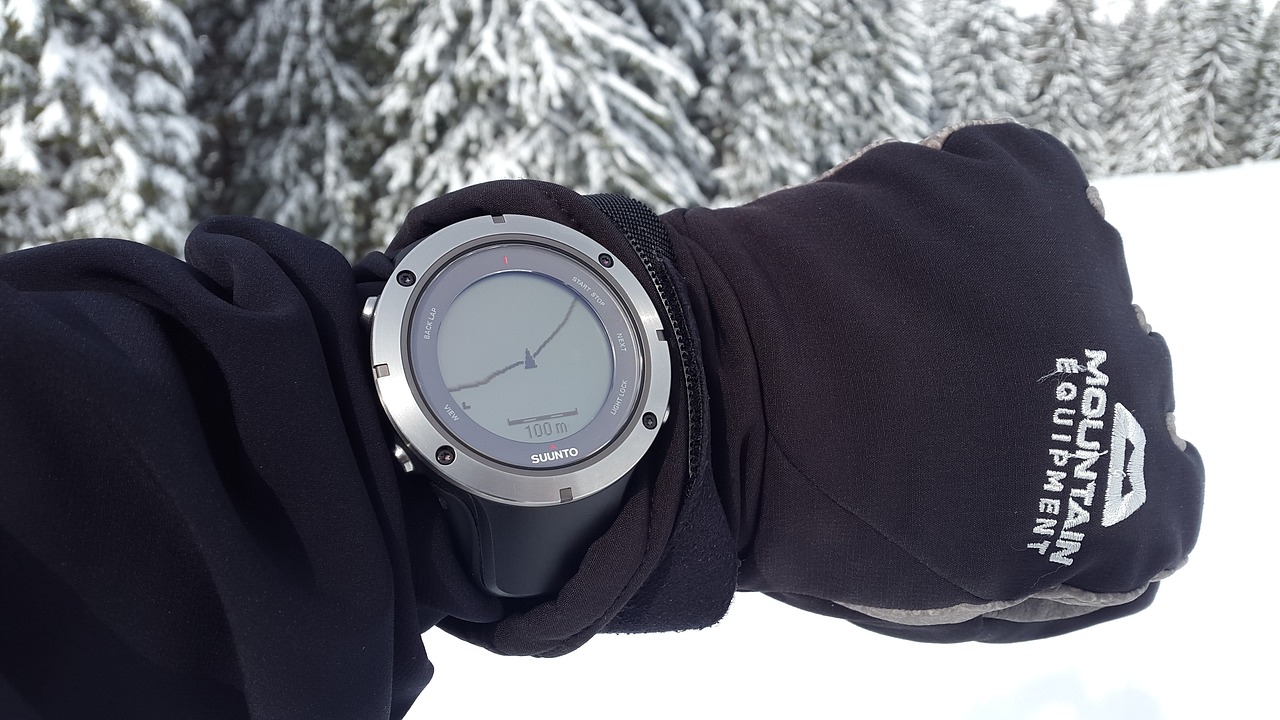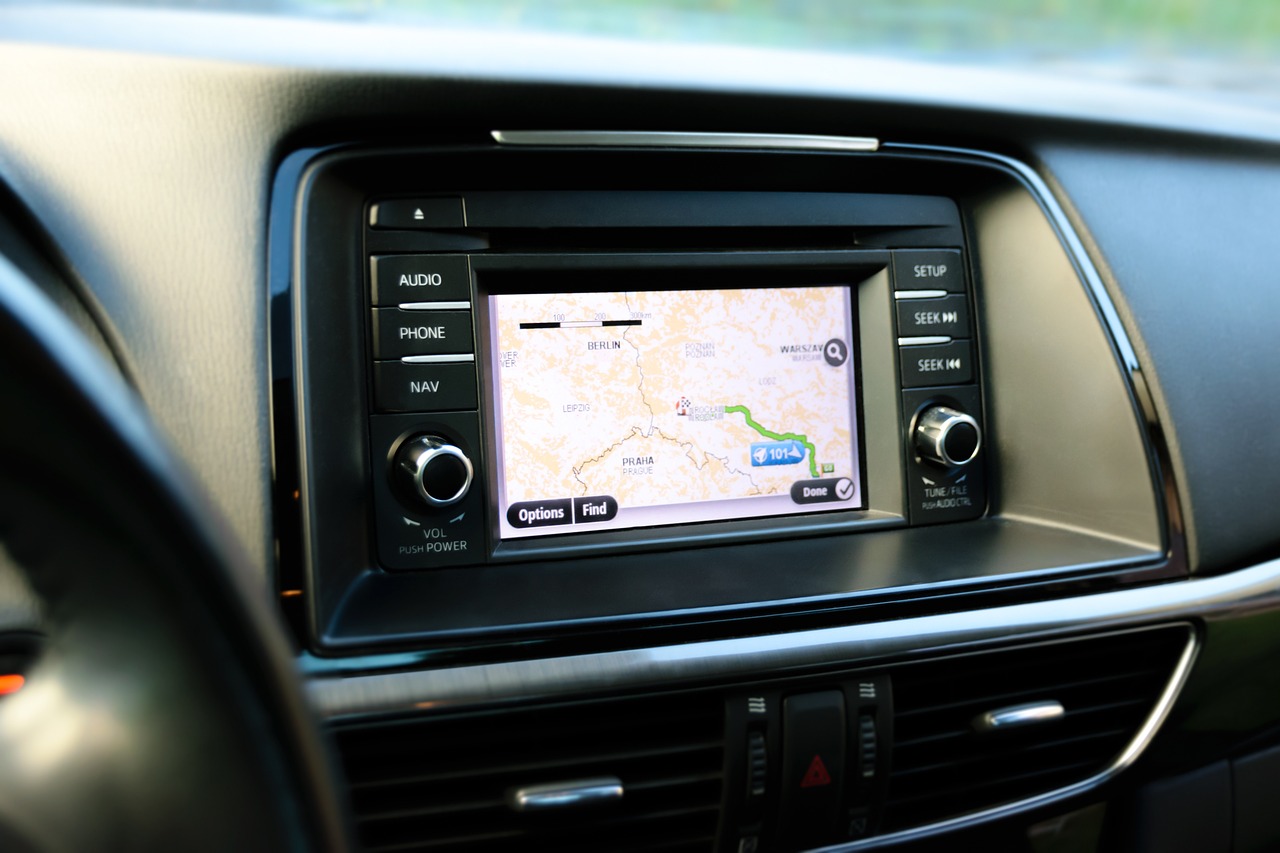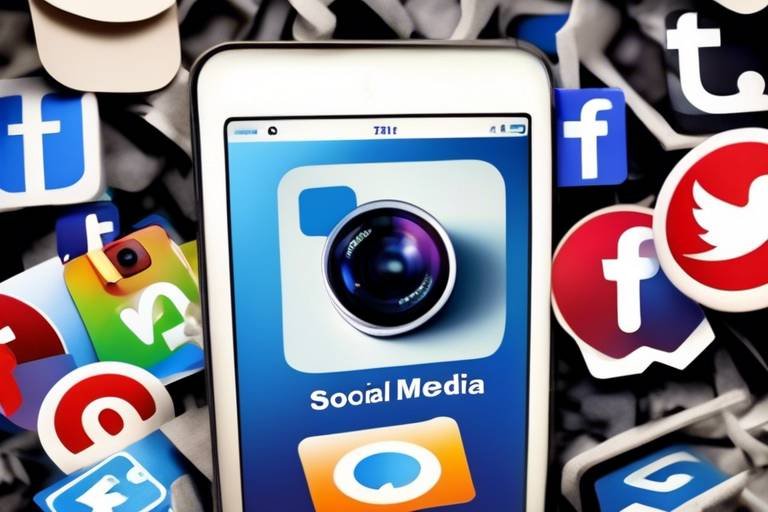Dangers of GPS Tagging on Social Media
In today's digital age, sharing our lives on social media has become second nature. With just a click, we can share our thoughts, photos, and experiences with friends and followers. However, one feature that often goes unnoticed is GPS tagging, which allows users to share their precise location. While this can be fun and engaging, it's crucial to understand the potential risks involved. The dangers of GPS tagging on social media can significantly affect our privacy, safety, and even our relationships. So, let's dive into these concerns and uncover the hidden risks that come with sharing our whereabouts.
When you GPS tag your posts, you're essentially giving away a piece of your personal life. Imagine this: every time you check-in at a restaurant or post a photo from your latest adventure, you're leaving a digital breadcrumb trail for anyone to follow. This can lead to significant privacy issues. Others can track your movements and behaviors without your consent, turning your seemingly innocent posts into a map of your daily life. This is not just a theoretical concern; it’s a real threat. For instance, if someone knows your routine, they could easily exploit that information. It’s like leaving your front door wide open while you’re away—inviting unwanted guests into your life.
Sharing your location in real-time can expose you to various safety threats. Think about it: when you announce to the world that you're at a particular place, you might be unintentionally inviting trouble. Malicious individuals can easily locate you, leading to potential stalking or harassment. This isn't just paranoia; there are countless stories of people facing dire consequences because they shared too much about their whereabouts. The internet can be a dangerous place, and when you add GPS tagging into the mix, it can become even more perilous. Are you willing to risk your safety for a few likes on a post? The answer should be a resounding no!
When GPS data is shared publicly, it opens the door to targeted harassment. Imagine someone using your location data to intimidate or threaten you. It’s a chilling thought, but it happens more often than you'd think. For example, someone could track your movements and confront you at places you frequent, creating an environment of fear and anxiety. The digital world can sometimes feel like the Wild West, where anyone can be a cowboy, and not all of them have good intentions.
Cyberstalkers can utilize GPS tagging to monitor victims' movements, creating a dangerous environment where individuals feel constantly watched. This form of harassment can escalate quickly, leading to real-life consequences. If someone knows where you are at all times, it can feel like there’s no escape. It’s essential to recognize that your online presence can have serious implications for your safety.
Individuals may face unwanted real-life encounters due to shared location data, increasing the risk of confrontations with strangers or acquaintances. Imagine posting about your latest trip to a local café, only to find someone you didn’t want to see suddenly showing up. This can create awkward situations and even lead to confrontations. The line between online and offline can blur quickly, and it’s vital to be cautious about what you share.
The potential for data misuse is significant, as GPS tagging can be exploited by third parties for malicious purposes. Identity theft and fraudulent activities are just a couple of examples of how your location data can be manipulated. Once your location is out there, it can be harvested by anyone with ill intentions. It’s like giving away the keys to your house—once they’re out, there’s no taking them back.
GPS tagging can strain personal relationships, as individuals may feel uncomfortable or violated when their location is shared without their knowledge. Imagine a friend posting your location without asking you first; it can lead to feelings of betrayal and mistrust. This kind of behavior raises questions about privacy boundaries and consent, which are crucial in any relationship.
The act of sharing location data can lead to trust issues between friends and family. It’s essential to communicate openly about privacy preferences. If someone feels their privacy has been invaded, it can create friction and misunderstandings. Are you willing to risk your relationships for a few social media interactions? It’s worth considering.
Understanding the etiquette surrounding GPS tagging is crucial. Failing to respect others' privacy can lead to misunderstandings and conflicts within social circles. It’s essential to ask for permission before tagging someone in a location-based post. Just because you can share your location doesn’t mean you should do it without considering the feelings of others. Remember, social media is meant to connect us, not divide us.
- What is GPS tagging? GPS tagging is the process of adding geographic location information to your social media posts.
- Why is GPS tagging dangerous? It can compromise your privacy and safety, making you vulnerable to stalking and harassment.
- How can I protect my privacy on social media? Be cautious about sharing your location, and consider adjusting your privacy settings on social media platforms.
- What should I do if I feel unsafe due to GPS tagging? If you feel threatened, consider reaching out to local authorities and review your social media privacy settings.

Privacy Concerns
In today’s digital landscape, GPS tagging has become a common feature on social media platforms, allowing users to share their location with friends and followers. However, this seemingly harmless act can lead to significant that many users may not fully appreciate. Imagine posting a picture from your favorite café, only to realize that your exact location is visible to anyone scrolling through your feed. This kind of exposure can compromise your personal privacy in ways you might never have considered.
When you tag your location, you’re not just sharing a moment; you’re inadvertently providing a roadmap of your daily life. This can allow others to track your movements and behaviors without your consent. For instance, let’s say you frequently check in at the gym or your favorite restaurant. Over time, someone could piece together your routine, making it easy for them to know when you’re not home or when you’re out and about. This is particularly concerning for those who value their privacy and want to keep their whereabouts under wraps.
Moreover, the potential for misuse of information is alarming. GPS data can be harvested by third parties, leading to targeted advertising or even worse, identity theft. It’s akin to leaving your front door wide open while you’re away—inviting unwanted attention and potential threats. When you consider that many social media platforms have less-than-robust privacy settings, it becomes clear that users need to be vigilant about what they share.
To illustrate the gravity of these privacy concerns, consider the following scenarios:
- Unwanted Attention: Sharing your location can attract the attention of strangers, leading to uncomfortable or dangerous situations.
- Data Breaches: If a platform suffers a data breach, your location information could be exposed to malicious actors.
- Loss of Control: Once you share your location, you lose control over who can see it and how it might be used.
In conclusion, while GPS tagging can enhance social connectivity, it’s crucial to weigh the benefits against the potential privacy risks. Always think before you tag, and consider whether sharing your location is truly worth the exposure. Remember, in the realm of social media, a moment of spontaneity could lead to long-term consequences.

Safety Risks
In today's hyper-connected world, sharing our lives on social media has become second nature. But have you ever stopped to think about the that come with GPS tagging? When you post your location in real-time, you might be inadvertently opening the door to a multitude of dangers that can affect your personal safety. Imagine walking down the street, and a stranger knows exactly where you are at any given moment. Sounds unsettling, right? This is the reality for many people who do not fully grasp the implications of their location data.
One of the most alarming aspects of GPS tagging is the potential for targeted harassment. When your location is publicly available, it can attract unwanted attention from individuals who may wish to exploit that information. This could range from annoying messages to more sinister forms of harassment. For instance, if a person shares that they are at a particular coffee shop, it could lead to someone showing up there unexpectedly, creating an uncomfortable or even dangerous situation.
Moreover, the threat of cyberstalking cannot be overlooked. Cyberstalkers often use GPS tagging as a tool to monitor their victims’ whereabouts. This creates a suffocating atmosphere where individuals feel as if they are constantly being watched. It’s like having a shadow that follows you everywhere, and that shadow knows your every move. The psychological toll of this can be immense, leading to anxiety and a sense of helplessness.
Additionally, there’s the risk of real-life encounters with individuals who may have ill intentions. Sharing your location can lead to situations where you unexpectedly run into someone who has been tracking your movements online. This could be an acquaintance, a former partner, or even a stranger who has taken a disconcerting interest in your activities. These encounters can escalate quickly, leading to confrontations that could have been easily avoided had the location data remained private.
In summary, while GPS tagging may seem harmless or even fun, it’s essential to weigh the risks involved. The safety threats associated with sharing your location in real-time can lead to serious consequences. Being aware of these dangers is the first step in protecting yourself and ensuring that your social media presence does not come at the expense of your safety.
- What is GPS tagging? GPS tagging is the process of adding location data to social media posts, allowing others to see where you are in real-time.
- How can GPS tagging affect my safety? It can expose you to stalking, harassment, and unwanted encounters, as others can track your movements.
- What should I do to protect my privacy? Limit the sharing of your location, adjust your privacy settings on social media, and be mindful of who can see your posts.
- Are there any benefits to GPS tagging? While there are risks, GPS tagging can help friends and family find you in emergencies or during events.

Targeted Harassment
When you share your location on social media, you might think you’re just letting your friends know where you are. However, the reality is that this seemingly innocent act can open the door to . Imagine posting a picture from your favorite coffee shop, only to find out that a stranger has seen your post and decides to show up there, uninvited. This is not just a hypothetical scenario; it happens more often than you might think. The information that seems harmless can be weaponized by those with malicious intent.
With GPS tagging, individuals can easily track your whereabouts in real-time. This capability can be exploited by stalkers or harassers who monitor your movements to create a sense of fear and vulnerability. For example, if someone knows your routine—like when you go to the gym or your favorite hangout spot—they can position themselves nearby, leading to uncomfortable or even dangerous encounters. It’s like giving a stranger the keys to your daily life, and that’s a risk no one should take.
Moreover, targeted harassment can manifest in various forms. It could be someone bombarding you with unwanted messages or comments after discovering your location. In more severe cases, it might escalate to physical stalking, where the harasser shows up at places you frequent, creating a terrifying experience. The emotional toll this can take is immense, as victims often feel like they are living in a constant state of anxiety and fear.
To illustrate the potential dangers, consider the following scenarios:
- Unwanted Attention: A person posts their location at a public event, and someone they don't know uses that information to approach them, leading to an uncomfortable situation.
- Escalation of Harassment: An individual shares their location at a bar, and a former acquaintance uses that information to confront them, potentially leading to a heated argument or worse.
- Social Media Oversharing: Friends may tag you in posts that reveal your location, even if you didn’t intend to share that information publicly, making you vulnerable to unwanted attention.
In conclusion, GPS tagging on social media may seem like a fun way to connect with friends, but it carries significant risks. The potential for targeted harassment is very real and can have lasting effects on your sense of safety and well-being. Always think twice before sharing your location, and consider the implications it may have on your privacy and security.
Q: What should I do if I feel threatened after sharing my location?
A: If you feel threatened, it’s essential to take immediate action. Consider removing the post, adjusting your privacy settings, and, if necessary, reporting the individual to the authorities.
Q: Can I prevent targeted harassment on social media?
A: Yes, you can enhance your privacy settings, limit who can see your posts, and avoid sharing your location in real-time. Always be cautious about what you share online.
Q: Are there legal protections against stalking and harassment?
A: Yes, many jurisdictions have laws against stalking and harassment. If you believe you are a victim, it is advisable to seek legal counsel or contact local law enforcement for guidance.

Cyberstalking
In today's digital age, the concept of stalking has evolved into a more sophisticated and insidious form known as . This phenomenon is particularly alarming when combined with the capabilities of GPS tagging on social media. Imagine sharing a seemingly innocuous post about your day at the park, only to unknowingly provide a roadmap for someone with malicious intent. Cyberstalkers can utilize GPS data to track your movements, making it feel as though you are under constant surveillance. This not only creates a sense of vulnerability but can also lead to severe emotional distress.
When someone is being cyberstalked, the feeling of being watched can be overwhelming. It’s like having a shadow that follows you everywhere, even into the most private corners of your life. The repercussions can be devastating, affecting mental health and leading to anxiety or depression. Victims may find themselves constantly looking over their shoulders, feeling like their personal space has been invaded. This is the reality for many individuals who have had their location data exploited.
Cyberstalkers often use various tactics to instill fear and control over their victims. Here are some common methods they might employ:
- Monitoring Social Media Activity: By keeping tabs on your posts and updates, they can predict your whereabouts and routines.
- Using Fake Accounts: They may create fake profiles to interact with you or your friends, further blurring the lines of safety.
- Gathering Information: Cyberstalkers can compile data from various sources, including GPS tags, to build a profile of your daily life.
It’s crucial to recognize the signs of cyberstalking early. If you notice unusual behavior from someone online, such as excessive messaging or attempts to gain personal information, it’s essential to take action. Protecting yourself starts with understanding the risks associated with sharing your location. Consider adjusting your privacy settings on social media platforms and think twice before tagging your location in real-time.
In conclusion, while GPS tagging can enhance our social media experience, it also opens the door to potential dangers like cyberstalking. By being aware of these risks and taking proactive measures, we can enjoy the benefits of technology without compromising our safety.
- What is cyberstalking? Cyberstalking is a form of stalking that occurs online, where an individual uses the internet to harass or intimidate another person.
- How can I protect myself from cyberstalking? To protect yourself, avoid sharing your location publicly, adjust your privacy settings, and report any suspicious behavior to the platform.
- What should I do if I think I'm being cyberstalked? If you believe you are a victim of cyberstalking, document all incidents, block the individual, and consider seeking legal advice.

Real-Life Encounters
In today's hyper-connected world, sharing your location on social media can lead to some unexpected and often unwelcome real-life encounters. Imagine posting a picture at your favorite café, only to find out later that someone you barely know saw your post and decided to show up there, uninvited. This scenario is more common than you might think. When you tag your location, you're essentially sending out an open invitation for people to track you down, and not everyone has good intentions.
The thrill of sharing your adventures online can quickly turn into a nightmare if someone misuses that information. For instance, let's say you frequently check in at the gym. A person with malicious intent could easily figure out your routine, and before you know it, they might show up at the same place, leading to awkward and potentially dangerous situations. It's akin to leaving your front door wide open while you're away; you might think it's harmless, but it leaves you vulnerable to unwanted visitors.
Moreover, these real-life encounters can escalate quickly. A seemingly innocent interaction can turn into something more uncomfortable or threatening. For example, someone might approach you under the guise of being a fan or a friend, but their intentions could be far from friendly. This is why it's crucial to think twice before sharing your location with the world.
To illustrate the potential dangers, consider the following table showcasing different scenarios where GPS tagging can lead to real-life encounters and their possible outcomes:
| Scenario | Potential Outcome |
|---|---|
| Checking in at a bar | Unwanted attention from acquaintances or strangers |
| Posting a photo at a concert | Meeting someone who may become overly familiar |
| Tagging your home location | Increased risk of burglary or stalking |
In conclusion, while GPS tagging can enhance your social media experience by sharing moments with friends and followers, it also comes with risks that shouldn't be ignored. The thrill of instant connection can quickly turn into a source of anxiety and fear if we aren't careful about what we share. So, the next time you're tempted to tag your location, pause and ask yourself: Is this really worth the potential consequences? Your safety and peace of mind should always come first.
- What is GPS tagging?
GPS tagging is the process of adding geographical location data to social media posts, allowing others to see where you are or where you've been.
- How can GPS tagging compromise my privacy?
By publicly sharing your location, you allow others to track your movements, which can lead to unwanted attention or even stalking.
- What are the safety risks associated with GPS tagging?
Real-time location sharing can expose you to various dangers, including harassment, stalking, and other safety threats.
- How can I protect myself while using social media?
Always consider the implications of sharing your location. Adjust your privacy settings, and think twice before tagging your location in posts.
- Can GPS tagging affect my relationships?
Yes, sharing your location without consent can lead to trust issues and conflicts among friends and family.

Data Misuse
In today’s digital age, the convenience of GPS tagging on social media often overshadows the potential dangers lurking beneath the surface. When you share your location, you might think it’s harmless, but the reality is that this data can be misused in ways that are both alarming and invasive. Imagine posting a picture at your favorite café, and suddenly, your location is a beacon for unwanted attention. This is not just a hypothetical scenario; it happens more often than you think.
One of the most concerning aspects of GPS tagging is how easily it can be exploited by third parties. For instance, malicious actors can gather location data from various social media platforms to create a detailed profile of your daily movements. This information can then be used for identity theft, where someone assumes your identity to access your accounts or commit fraud. It's like handing a thief the keys to your house—once they know where you are, they can plan their moves accordingly.
Moreover, the potential for cyberbullying is heightened when GPS tagging is involved. Imagine a situation where a bully discovers your location through a post. They could easily show up at your location, creating a hostile environment. This can lead to a cycle of fear and anxiety, as victims may feel they are being constantly monitored. The implications are severe, extending beyond just social media into real-life threats.
In addition to personal safety, the misuse of location data can also lead to fraudulent activities. For example, if a criminal knows you are frequently away from home at specific times, they might target your house for a burglary. They could follow your social media updates to determine when you are least likely to be around, making it easier for them to strike. This kind of data misuse is a stark reminder that what seems like a simple check-in can have dire consequences.
To illustrate the various ways GPS data can be misused, consider the following table:
| Type of Misuse | Description |
|---|---|
| Identity Theft | Using location data to impersonate someone and access their accounts. |
| Stalking | Tracking an individual’s movements to harass or intimidate them. |
| Burglary | Monitoring posts to determine when a person is away from home. |
| Cyberbullying | Using location data to target and harass individuals online and offline. |
In conclusion, while GPS tagging may seem like a fun way to share your adventures, it’s crucial to be aware of the potential for data misuse. The internet is a double-edged sword; the very tools that connect us can also expose us to risks we may not fully comprehend. So, the next time you think about tagging your location, ask yourself: Is it worth the risk?
- What is GPS tagging? GPS tagging refers to the process of adding geographical location information to various media such as photos or posts on social media platforms.
- How can GPS tagging compromise my privacy? When you tag your location, others can track your movements, which may lead to unauthorized access to your personal information.
- What should I do to protect myself from data misuse? Be cautious about sharing your location online, adjust your privacy settings, and consider disabling location services on social media apps.
- Can GPS tagging lead to cyberbullying? Yes, sharing your location can make you vulnerable to harassment or bullying from individuals who may exploit this information.

Impact on Relationships
In our hyper-connected world, sharing every moment of our lives on social media has become the norm. However, GPS tagging can create a ripple effect that impacts our personal relationships in unexpected ways. Imagine you’re enjoying a lovely dinner with friends, and suddenly you receive a notification that someone has tagged you at that location. While it may seem harmless, it raises eyebrows and questions about trust and privacy. Are you comfortable with your exact whereabouts being broadcasted to the world? This is where the trouble begins.
When you share your location, it can lead to feelings of discomfort among friends and family. Some may feel like they’re under a magnifying glass, constantly scrutinized by others. This can create a rift, as individuals may question the boundaries of privacy. For instance, if a friend tags you at a party without your consent, it could lead to awkward conversations and feelings of betrayal. It’s essential to understand that not everyone wants their location shared, and respecting these boundaries is crucial.
Moreover, the act of GPS tagging can lead to trust issues within relationships. When one person feels comfortable sharing their location, but another does not, it can create an imbalance. For example, if you frequently tag your partner in locations without discussing it first, they may feel like their privacy is being violated. This can lead to arguments and misunderstandings, ultimately straining the relationship. It’s like walking a tightrope; one misstep can lead to a fall.
Additionally, the social media etiquette surrounding GPS tagging is often overlooked. Many people don’t realize that sharing someone else's location without their permission can be seen as a breach of trust. It’s like telling a secret that wasn’t yours to share. This can result in conflicts within social circles, as individuals may feel uncomfortable or even angry about their location being shared without their consent. To maintain healthy relationships, it’s vital to have open conversations about what is acceptable when it comes to sharing personal information.
To further illustrate the impact of GPS tagging on relationships, consider the following table:
| Impact | Description |
|---|---|
| Trust Issues | Sharing location without consent can lead to feelings of betrayal. |
| Social Conflicts | Unapproved tagging can cause misunderstandings among friends. |
| Privacy Violations | Not everyone is comfortable with their location being public. |
In conclusion, while GPS tagging can enhance our social media experience, it’s essential to recognize its potential impact on our relationships. Open communication and respect for privacy boundaries can help mitigate these issues, ensuring that our connections remain strong and healthy. Remember, it’s not just about sharing your life online; it’s about being mindful of how it affects those around you.
- What is GPS tagging? GPS tagging is the process of adding geographical location information to a social media post.
- How can GPS tagging affect my privacy? It can expose your whereabouts to anyone who has access to your posts, potentially leading to unwanted attention.
- What should I do if someone tags me without my consent? Have a conversation with them about your privacy preferences and ask them to remove the tag if necessary.
- Is it safe to use GPS tagging on social media? It can be safe if used thoughtfully, but it’s essential to consider the potential risks involved.

Trust Issues
When it comes to GPS tagging on social media, trust can become a fragile commodity. Imagine sharing your location with friends or posting about your latest adventure, only to find out that someone you thought you knew has been tracking your every move. This scenario is not just a figment of the imagination; it’s a reality that many face in today’s hyper-connected world. The act of sharing your whereabouts can lead to uncomfortable conversations, where the lines of privacy and consent become blurred.
Trust issues often arise when individuals feel that their personal space is being invaded. For instance, consider a situation where a friend tags you in a location without your permission. You might feel exposed, as if they have revealed a secret you weren’t ready to share. This can lead to feelings of betrayal, and the trust that once existed can quickly erode. Trust is built on mutual respect, and when someone disregards your privacy, it can create a rift that’s hard to mend.
Moreover, the implications of GPS tagging extend beyond just personal relationships. It can affect how people perceive you within your social circles. Friends may begin to question your boundaries and whether you are genuinely comfortable with them sharing your location. This uncertainty can lead to a breakdown in communication, as individuals may hesitate to engage in conversations about their whereabouts for fear of overstepping boundaries.
In addition, the potential for misunderstandings is significant. For example, if someone sees a post indicating you are at a certain location, they might assume you are available to meet up, leading to awkward situations. This can create a cycle of confusion and discomfort, further straining relationships. It’s essential to have clear discussions about privacy expectations to prevent these misunderstandings from escalating.
To highlight the importance of communication regarding GPS tagging, here’s a simple table that outlines potential trust issues and their impacts:
| Trust Issue | Impact on Relationships |
|---|---|
| Unauthorized tagging | Feelings of betrayal and discomfort |
| Miscommunication | Awkward encounters and misunderstandings |
| Lack of boundaries | Strained trust and increased tension |
Ultimately, it’s crucial to engage in open conversations about GPS tagging and its implications. Establishing clear boundaries and respecting each other’s privacy can help maintain trust within relationships. Remember, a little communication goes a long way in preserving the bonds that matter most.
- What is GPS tagging? GPS tagging refers to the practice of sharing your geographical location through social media platforms.
- How can GPS tagging affect my privacy? Sharing your location publicly can allow others to track your movements, potentially leading to privacy invasions.
- What are the safety risks associated with GPS tagging? Real-time location sharing can expose you to threats such as stalking or harassment.
- How can I protect my privacy while using GPS tagging? Always check your privacy settings and consider whether to share your location with specific individuals.

Social Media Etiquette
In today's digital age, where sharing is second nature, understanding is more important than ever, especially when it comes to GPS tagging. Imagine you’re at a party, and someone casually posts a picture of the venue with your exact location tagged. It may seem harmless, but what if you have a stalker? Or what if someone you don’t want to see shows up because they know where you are? The line between sharing and oversharing can be incredibly thin, and respecting the privacy of others is crucial.
When it comes to tagging your friends or family in posts that disclose their location, it’s essential to ask for their permission first. Just like you wouldn’t want someone to share your personal information without your consent, the same courtesy should extend to others. A simple message asking, "Hey, is it cool if I tag you here?" can save a lot of potential misunderstandings. This small gesture goes a long way in maintaining trust and respect in your relationships.
Moreover, consider the context of your posts. Are you sharing your location while on vacation in a public place, or are you at home? The implications of sharing your whereabouts can vary significantly. For instance, posting a photo of your home while you're on a week-long trip can signal to potential burglars that your house is empty. So, it’s vital to think before you click. Always ask yourself, "Who will see this? How could this information be misused?"
Another aspect of social media etiquette involves being mindful of your audience. Different platforms have different norms. For example, what might be acceptable on Instagram may not be appropriate on Facebook or Twitter. Tailoring your posts to fit the audience can help you avoid awkward situations and potential fallout. If you’re unsure, it’s always better to err on the side of caution.
Lastly, it’s worth mentioning the importance of educating others about the potential risks of GPS tagging. If you notice a friend frequently sharing their location without considering the dangers, gently bring it up in conversation. Sharing knowledge can empower others to make safer choices online. After all, we’re all in this digital world together, and a little awareness can go a long way.
- What should I do if someone tags me in a location I don’t want to be associated with?
You can untag yourself from the post or ask the person to remove the tag. Always prioritize your comfort and safety. - Is it safe to share my location on social media?
It depends on the context. Always consider who can see your posts and how the information can be misused. - How can I educate my friends about GPS tagging risks?
Start a conversation about privacy and share articles or personal experiences that highlight the importance of being cautious with location sharing.
Frequently Asked Questions
- What is GPS tagging on social media?
GPS tagging on social media refers to the practice of adding geographical location data to posts, photos, or videos shared on platforms like Facebook, Instagram, and Twitter. This allows others to see where you are or have been at any given time.
- How does GPS tagging affect my privacy?
GPS tagging can greatly compromise your privacy. When you share your location, it can be accessed by anyone who views your post, allowing them to track your movements, habits, and routines. This can lead to unwanted attention or even stalking.
- What are the safety risks associated with GPS tagging?
Sharing your location in real-time can pose serious safety risks. It makes it easier for malicious individuals to locate you, potentially leading to harassment or stalking. It's essential to be cautious about when and where you share your location.
- Can GPS tagging lead to targeted harassment?
Yes, it can. When your GPS data is publicly shared, it can be exploited by individuals with harmful intentions, resulting in targeted harassment. This could manifest in various forms, from unwanted messages to threatening behavior.
- What is cyberstalking, and how does GPS tagging relate to it?
Cyberstalking involves the use of the internet to harass or intimidate someone. GPS tagging can facilitate this by allowing stalkers to monitor a victim's movements, creating a sense of fear and vulnerability.
- How can GPS tagging impact my relationships?
GPS tagging can strain personal relationships, especially if someone feels their privacy has been violated. Sharing your location without consent can lead to trust issues and misunderstandings among friends and family.
- What are the social media etiquette rules regarding GPS tagging?
It's crucial to respect others' privacy when it comes to GPS tagging. Always ask for consent before sharing someone else's location, and be mindful of how your own location data might affect others. Following these guidelines can help prevent conflicts and misunderstandings.
- What can I do to protect my privacy when using GPS tagging?
To safeguard your privacy, consider disabling location services on your social media apps, or only sharing your location with trusted friends. Additionally, review your privacy settings to control who can see your posts and location data.



















